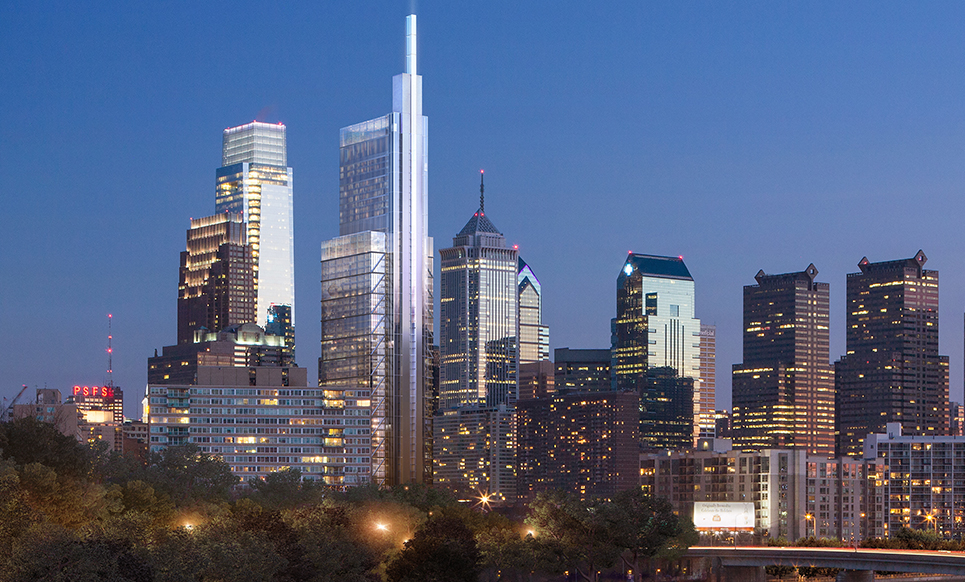12 August 2025
See how JMBM’s Global Hospitality Group® can help you.
Unlocking Value in Hospitality: The New Era of Hotel Mixed-Use Development in Qualified Opportunity Zones
By Guy Maisnik, Vice Chair of The Global Hospitality Group, Jeffer Mangels Butler & Mitchell, LLP
The One Big Beautiful Bill Act (OBBB) has fundamentally changed the landscape for real estate investment in America—permanently enshrining the Qualified Opportunity Zone (QOZ) framework and expanding the horizon for hotel mixed-use development. For developers, investors, lenders, and deal sponsors, the new OBBB regime offers unmatched certainty, flexibility, and opportunity—but it also demands rigorous compliance and strategic planning. Here’s a deep-dive narrative for industry professionals charting the future of hospitality-led community reinvestment.
I. The OBBB Revolution: OZ Permanency, Enhanced Incentives, and Hospitality
With the OBBB’s passage, Opportunity Zones became a long-term pillar of U.S. tax policy. Gone is the uncertainty that once limited major capital flows. Instead, asset allocators—ranging from pension funds to private equity—can now underwrite horizon investments knowing key incentives like tax-deferral and gain exclusion are locked in.
Key Features for Hotel Projects
- Permanent OZ Program: No sunset. Sponsors can plan and phase large urban or resort projects without fear of the window closing.
- Rolling Redesignation: New OZs will be proposed every decade, creating dynamic markets for future hospitality developments.
- Rural OZ Boost: Rural hotels receive a 30% basis step-up after five years, and only need to improve 50% of their basis—a major win for resort and adventure destination sponsors.
- Enhanced Transparency: With new annual reporting requirements, deal clarity is sharpened for institutional lenders, community stakeholders, and public-sector partners.
II. Structuring Hotel Mixed-Use Development for Maximum Opportunity
- Building for Compliance
Hotel projects are best structured as Qualified Opportunity Funds (QOFs) that invest in a Qualified Opportunity Zone Business (QOZB). This two-entity approach, favored by both tax counsel and institutional LPs, enables both property and active business income to qualify for OZ benefits.
- Eligible Property: OZ programs allow owned and leasehold property, including real estate and movable FF&E, provided the “original use” or “substantial improvement” tests are satisfied.
- Active Trade or Business: Hospitality operations must generate at least 50% of gross income from the property in the zone. Passive triple-net leases or heavily outsourced arrangements risk compliance.
- Navigating Substantial Improvement, Phasing, and Mixed-Use Complexities
- Substantial Improvement: Most historic conversions (urban hotels, adaptive reuse) require doubling the basis of the building portion—except in rural OZs, where only a 50% increase is mandated.
- Original Use Projects: New ground-up hotels are straightforward—they qualify from day one under “original use.”
- Mixed-Use Allocation: Sponsors must allocate cost basis between hotel, retail, residential, conference, and parking assets—ensuring each meets applicable OZ standards.
- Phased Construction: Treasury regulations recognize the reality of multi-phase developments; QOZBs may deploy capital under a 31-month working capital safe harbor, extendable for government delays.
III. Financing Hotel Projects: Capital Stacks, Lender Comfort, and Bonus Depreciation
- Typical Capital Stacks
Hotel OZ projects feature hybrid capital structures:
- QOF Equity: Often the anchor, composed of rolled capital gains from investors seeking both tax deferral and upside.
- Conventional Debt: Banks, CMBS lenders, and sometimes HUD offer construction and takeout financing, provided strict OZ compliance is maintained.
- Preferred Equity/Mezzanine: Used to round out the stack, sometimes from EB-5 investors or public sources such as TIFs.
- State and Local Incentives: Frequently paired with OZ investments for historic or catalytic hospitality projects.
- Lender Friction and Solutions
Lenders scrutinize OZ hotel projects for:
- Debt Service Coverage: Underwriting must account for development timelines and ramp-up periods—a point of differentiation with hospitality.
- Legal Opinions: Lenders often require tax counsel opinions attesting to OZ structure integrity and risk mitigation (notably around substantial improvement and safe harbor planning).
- Transparency: Annual asset, impact, and compliance reporting (post-OBBB) is now critical for both institutional investors and lenders evaluating credit risk.
- Bonus Depreciation
Sponsors enjoy 100% first-year bonus depreciation for eligible tangible property acquired and placed in service after January 19, 2025—a benefit magnified for hotels, which have significant FF&E components. Property acquired before this date is subject to lower, phased-down deduction rates. Smart structuring and cost segregation studies allow rapid recovery of investment and stronger early-stage distributions.
Smart structuring and cost segregation studies allow rapid recovery of investment and stronger early-stage distributions.
IV. Investor Dynamics: Returns, Waterfalls, and Pitching Post-OBBB
- Return Profiles: Hospitality deals differ from multifamily or office—exhibiting more “J-curve” effects (delayed stabilization, upside via brand/repositioning, diverse cash flow streams).
- Investor Benefits: Hotel OZ opportunities as:
- Inflation-hedged, with dynamic income potential (room rates, F&B, events)
- Community anchors driving local employment and revitalization
- Vehicles for permanent tax benefit—especially appealing post-OBBB
- Preferred Returns & Waterfalls: Proper structuring preserves upside for sponsors but ensures “tax attributes” (deferral, step-ups, exclusions) flow to eligible LPs.
V. A Real-World Hotel QOZ Case Study
Imagine a southwest city’s historic main street. The Project is a classic bank-to-luxury-hotel conversion (with integrated co-working, food hall, and community event space):
- Site & Entitlement: Navigated brownfield remediation and landmark approvals (Year 1).
- Capital Stack: $15M QOF equity, $20M construction loan, $4M preferred equity from an EB-5 syndicate, $3M TIF grant.
- Structure: Two-entity (QOF + QOZB) structure; phased rollout leveraging 31-month safe harbor and bonus depreciation.
- Operation: Multi-brand soft-flag arrangement with independent F&B vendors, maintaining “active business” status for QOZB.
- Exit Scenarios: (a) Bulk sale to PE after 10 years; (b) REIT roll-up; (c) refinance and hold for continuous cash flow with tax-free treatment for investors.
- Impact: 300+ construction and operations jobs, tourism revenue, triple-digit occupancy premium in Year 3.
VI. Sponsor’s Compliance Checklist: Hotel QOZ Project
| Compliance Area | Key Standard/Requirement | Best Practice |
| Reinvest Gains | 180-day deadline from realization | Calendar/procedure tracking |
| QOF Formation | US entity; Form 8996 self-certify | Central file/annual checklist |
| QOZB Operations | 70% tangible property, 50% income | Site mapping, business plans |
| Substantial Improvement | Double (or 50%) basis in 30 months | Construction timeline |
| Working Capital | 31-month plan, extendable for delays | Written plan, track milestones |
| Reporting | Annual impact, compliance reporting | Data systems, CPA engagement |
| Depreciation | 100% bonus for eligible property | Cost segregation study |
| Exit/Waterfall | Exit model, tax analysis for LPs | PPM, scenario planning |
VII. Key Legal and Regulatory Sources
- Internal Revenue Code §§ 1400Z-1, 1400Z-2.
- Treasury Regulations §1.1400Z2(a)-1, §1.1400Z2(d)-1 and final Treasury “QOZ” regulations (2019, 2020).
- IRS Notices (e.g., 2021-10; working capital safe harbor).
- OBBB legislative text and summaries (as finalized).
- Industry guides on FF&E treatment, depreciation, and compliance architecture.
Conclusion: Seizing the Next Decade of OZ Hospitality
With permanency, expanded incentives, and heightened transparency, OBBB has set the stage for a decade of hospitality-led Opportunity Zone development. Sponsors prepared to rigorously document, diligently monitor, and creatively structure their hotel mixed-use projects will unlock attractive returns—for investors, lenders, local communities, and their own firms.
Industry leaders: Now is the moment to stake your claim in the next generation of transformational real estate, powered by federal support but dependent on vision, discipline, and innovative execution.
T his is Jim Butler, author of www.HotelLawBlog.com and founding partner of JMBM and JMBM’s Global Hospitality Group®. We provide business and legal advice to hotel owners, developers, independent operators and investors. This advice covers critical hotel issues such as hotel purchase, sale, development, financing, franchise, management, ADA, and IP matters. We also have compelling experience in hotel litigation, union avoidance and union negotiations, and cybersecurity & data privacy.
his is Jim Butler, author of www.HotelLawBlog.com and founding partner of JMBM and JMBM’s Global Hospitality Group®. We provide business and legal advice to hotel owners, developers, independent operators and investors. This advice covers critical hotel issues such as hotel purchase, sale, development, financing, franchise, management, ADA, and IP matters. We also have compelling experience in hotel litigation, union avoidance and union negotiations, and cybersecurity & data privacy.
JMBM’s Global Hospitality Group® has been involved in more than $125 billion of hotel transactions and more than 4,700 hotel properties located around the globe. Contact me at +1-310-201-3526 or jbutler@jmbm.com to discuss how we can help.




 Proposed $1.2 billion, 59-story Comcast Center with Four Seasons Hotel in Philadelphia, PA.
Proposed $1.2 billion, 59-story Comcast Center with Four Seasons Hotel in Philadelphia, PA.